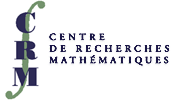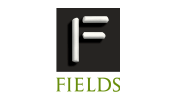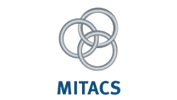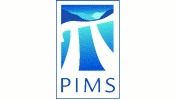 |
|
||||
Org: Mitja Mastnak (Saint Mary's) and Dilian Yang (Windsor)
[PDF]
- MICHAEL ANSHELEVICH, Texas A&M University, College Station, TX, USA
A Bochner-Pearson type class [PDF] -
This talk is about the operator Lm[f] = òR [(f(x)-f(y))/(x-y)] dm(y) (here m is a measure), or more precisely about the related Sturm-Liouville-type operator Qm = p(x) Lm2 + q(x) Lm. I will describe when such an operator has polynomial eigenfunctions; for the SL operators, the corresponding class is the Bochner-Pearson class. The operator has orthogonal polynomial eigenfunctions only if m is a semicircular distribution. More generally, the operator p(x) Lm Ln + q(x) Lm has orthogonal polynomial eigenfunctions only if m is a Jacobi shift of n.
- BERNDT BRENKEN, University of Calgary
The C*-algebra of a Partial Isometry [PDF] -
In joint work with Zhuang Niu we considered some questions on the universal C*-algebra of a partial isometry. It has long been known that this class of operators is intractable; nevertheless it is possible to say some things about this C*-algebra of interest to both operator theorists and algebraists. In particular we relate this C*-algebra to the universal unital C*-algebra generated by a contraction, and show it is non-unital, non-exact, and residually finite dimensional. Additionally, we compute its K-theory.
- MAN-DUEN CHOI, University of Toronto, Toronto, Ontario M5S 2E4
Completely positive linear maps made more difficult [PDF] -
With pride and prejudice in operator algebras, we seek sense and sensibility of non-commutative analysis in quantum information. There arise new problems showing very deep aspects of completely positive linear maps, even in the low dimensional case.
- KENNETH R. DAVIDSON, University of Waterloo
Commutant Lifting for Commuting Row Contractions [PDF] -
Arveson and Muller-Vasilescu showed that every commuting n-tuple T1,...,Tn which is a row contraction has a canonical minimal dilation to an n-tuple of the form Mi(s) ÅUi, 1 £ i £ n, where Mi are the multipliers on symmetric Fock space by the n coordinates functions on the complex n-ball, and Ui are commuting normal operators with spectrum in the unit sphere. We show that if X is a contraction commuting with each Ti, then it dilates to a contraction commuting with this dilation.
This is joint work with Trieu Le.
- GEORGE ELLIOTT, University of Toronto
Some remarks on classification [PDF] -
A brief survey of certain problems and recent results in the classification of C*-algebras will be undertaken. One such result is due to Fernando Mortari, who has extended Jesper Villadsen's higher stable rank simple C*-algebra construction to include examples with non-unique trace. Among problems, it is still not known if Villadsen's stable rank one simple C*-algebra construction, yielding examples with perforated ordered K-groups, can be modified to give examples with unique trace. Would these then necessarily have real rank zero? Can Mikael Rordam's simple C*-algebras with both finite and infinite projections be modified to have real rank zero?
- DOUGLAS FARENICK, University of Regina
Weakly continuous Hilbert bundles [PDF] -
If D is a Stonean space and if (D,{Hs}s Î D,W) is a continuous Hilbert bundle over D, then there is an associated set Wwk of vector fields that satisfy continuity properties relative to the weak topology of the Hilbert space fibres Hs.
We prove that this set of vector fields carries the structure of a Kaplansky-Hilbert module over C(D) and that the algebra B(Wwk) of bounded (adjointable) endomorphisms of Wwk is a type I AW*-algebra. Further, we show that B(Wwk) is the injective envelope and second-order local multiplier algebra of the C*-algbera K(W) of compact endomorphisms of the Hilbert C*-module W. In fact, B(Wwk) = Mloc ( Mloc (A) ) = I(A) for the spatial continuous trace C*-algebra A induced by the continuous Hilbert bundle (D,{Hs}s Î D,W).
This is joint work with M. Argerami and P. Massey.
- REMUS FLORICEL, University of Regina
Conjugacy properties of pure E0-semigroups [PDF] -
An E0-semigroup r = {rt}t ³ 0 acting on B(H) is said to be pure if its tail algebra Çt > 0 rt ( B(H) ) reduces to scalars. Our purpose in this talk is to present various results regarding the classification of pure E0-semigroups up to conjugacy.
- MATTHEW KENNEDY, University of Waterloo
Wandering vectors and the reflexivity of free semigroup algebras [PDF] -
A free semigroup algebra S is the weak-operator-closed (non-self-adjoint) operator algebra generated by n isometries with pairwise orthogonal ranges. A unit vector x is said to be wandering for S if the set of images of x under non-commuting words in the generators of S is orthonormal.
In this talk, we present the following dichotomy: either a free semigroup algebra has a wandering vector, or it is a von Neumann algebra. Consequences include that every free semigroup algebra is reflexive, and that certain free semigroup algebras are hyper-reflexive with a very small hyper-reflexivity constant.
- DAVID KRIBS, University of Guelph
Quantum error correction on infinite dimensional Hilbert spaces [PDF] -
I will discuss a recent generalization of the quantum error correction framework to infinite-dimensional Hilbert spaces. The generalization yields new classes of quantum error correcting codes that have no finite-dimensional counterparts. The theory begins with a shift of focus from states to algebras of observables. Standard subspace codes and subsystem codes are seen as the special case of algebras of observables given by finite-dimensional von Neumann factors of type I. The generalization allows for the correction of codes characterized by any von Neumann algebra.
This talk is based on joint work with Cedric Beny and Achim Kempf, found in the paper in J. Math. Phys. 50(2009), 062108.
- LAURENT MARCOUX, Dept. of Pure Mathematics, University of Waterloo, Waterloo, Ontario N2L 3G1
Relative annihilators and relative commutants [PDF] -
If A is a algebra of operators acting on a Hilbert space H, and if S is a subspace of A, the relative commutant of S in A is the set Sf = {T Î A : T S = S T for all S Î S}. The relative annihilator of S is S° = {T Î A : T S = 0 = S T} for all S Î S. In this talk we shall discuss the relationship between these two notions for certain weak-operator closed subspaces of nest algebras.
- JAMES A. MINGO, Queen's University, Kingston, Ontario K7L 3N6
Cumulants of the Weingarten Function [PDF] -
The Weingarten function has emerged as a central object in the asymptotics of representation theory of the classical groups as well as in estimating unitary matrix integrals. I will show how techniques from free probability can be used to analyse the Weingarten function.
This is joint work with Roland Speicher.
- ALEXANDRU NICA, University of Waterloo
Infinitesimal non-crossing cumulants and free probability of type B [PDF] -
Free probabilistic considerations of type B have been around starting with a paper by Biane, Goodman and Nica from 2003. Earlier this year, Belinschi and Shlyakhtenko have connected free probability of type B to a framework called "infinitesimal free probability". My talk will present a joint work with Maxime Fevrier (arXiv:0906.2017) where we pursue this interplay between "type B" and "infinitesimal". Specifically, we introduce a concept of infinitesimal non-crossing cumulants (associated to an infinitesimal noncommutative probability space), which are obtained by taking a formal derivative in the formula for usual non-crossing cumulants. We prove that infinitesimal freeness of random variables is equivalent to a vanishing condition for mixed cumulants; this gives an infinitesimal counterpart for a theorem of Speicher from usual free probability. We observe how infinitesimal cumulants relate to non-crossing partitions of type B, and how they can be used to obtain infinitesimal analogues for some basic freeness results. We discuss some situations when freeness of unital subalgebras A1,...,Ak in a noncommutative probability space (A,j) can be upgraded to infinitesimal freeness (e.g., in the case when one has a derivation on A which leaves every Ai invariant).
- DAVID R. PITTS, University of Nebraska-Lincoln
The D-Radical of an Inclusion [PDF] -
An inclusion is an ordered pair (C,D) consisting of a unital C*-algebra C and an abelian C*-subalgebra D with I Î D Í C. Let ND (C) : = {v Î C : vD v* Èv* D v Í D} be the set of normalizers of D. The inclusion (C,D) is regular if [`span] ND (C) = C.
Call the regular inclusion (C,D) an extension inclusion if D has the extension property in C (i.e., every pure state of D extends uniquely to a state on C). A result of Archbold-Bunce-Gregson shows that whenever (C,D) is an extension inclusion, there exists a unique conditional expectation E : C ® D. A C*-diagonal is an extension inclusion such that E is faithful. The notion of C*-diagonal was introduced by Kumjian in a 1986 paper using an equivalent set of axioms; Kumjian showed that C*-diagonals admit coordinates. Other authors (e.g., Muhly-Solel, Donsig-Pitts) utilized these coordinates in the study of subalgebras of C*-diagonals.
In this talk, I will introduce a certain ideal of C, the D-radical of the inclusion (C,D), and will discuss the following two results:
(a) a regular inclusion (C,D) regularly embeds into an extension inclusion if and only if the relative commutant of D in C is abelian, and
(b) a regular inclusion (C,D) regularly embeds into a C*-diagonal if and only if the D-radical of (C,D) vanishes. If time permits, I will also discuss a certain groupoid which can be associated to a regular inclusion. - ORR SHALIT, University of Waterloo
Can every k-tuple of commuting CP maps be dilated to a k-tuple of commuting *-endomorphisms? [PDF] -
Can every k-tuple of commuting CP maps be dilated to a k-tuple of commuting *-endomorphisms? The answer is no. That has been suspected for at least a decade, but was resolved only recently. In my talk I will explain the question and the answer, and I will also explain that while this "no" has been the expected answer-it is still very surprising!
Based on joint work with Baruch Solel.





